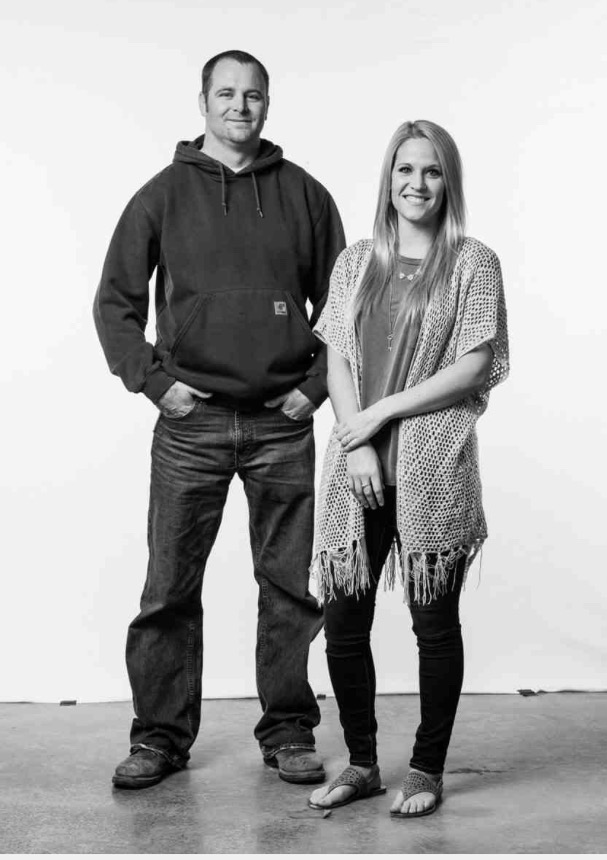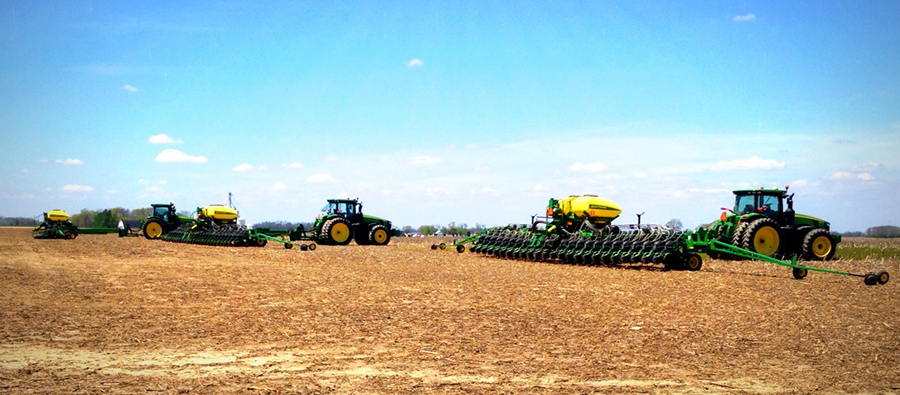I grew up on my family’s home farm located in South West Ohio. I always took an interest in agriculture and grew up in an environment in which the majority of our conversations around the dinner table were talking about the weather or how the corn crop looked. Production farming was a huge part of who we were and how we were raised. Being one of four girls, it was not as common to come home to the family farm but as I entered my high school years, I knew that there had to be a place for me.
After graduating high school, I went on to study business management at Wright State University. My passion for business quickly grew and I could not wait to return back to the family farm and begin my career. Today, I am third generation farmer and the first female to join our family operation. I farm alongside my father, grandfather, uncle, cousin, and 19 hardworking employees. Our annual commodities consist of corn, soybeans, and soft red winter wheat. Today we farm in seven different counties, but our home farm still lies on the same property that I grew up on. The original 200-acre farm property has witnessed a lot of history, hard work, and change over the past 65 years.
Just like all other businesses
From the outside looking in, the everyday consumer views a farm as planting and harvesting a crop. Yes, that is a HUGE part of what we do but what the average consumer doesn’t see is the remaining parts of the year that don’t take place in the field. That is where my job lies. Although we are a family farm, we operate just like all other businesses across America. We have budgets to generate, inventory to control, inputs to purchase, a crop to store, market, and deliver, business relationships to cultivate, and data to manage. A lot of what I do on a day to day basis is to utilize the technology available to us in order to evaluate our operation. We want to make sure we are always being the most efficient operation in all areas to make sure we are sustainable and here for many more generations to come. We do this by striving to always take care of the land. We lease a lot of the ground that we farm, but tend to it as if each acre was our own.

Kasey and Heath are third-generation owners of Bryant Agricultural Enterprises
Turning to digital tech
Production agriculture has adapted and became part of a technological world like many other sectors in our world today. Before driverless cars there were GPS operated tractors. Today our operation, Bryant Agricultural Enterprise, uses Granular Ag, a software management company to help us better manage and digest data about our operation. All employees work off an app from their IPhone where they are able to record inputs and time spent on each field. This allows me to be able to oversee production at the field level (rather than at an enterprise level) and track financials back to each field. We are also able to monitor weather, growth stages of the crop, and tap in to the software in our equipment to store equipment information. In the off-seasons we utilize this data to help us prepare for the next growing season and analyze our operation and the inputs we are using.
We also test the normally do a three-year test plot in order to see how new seed varieties compete against varieties we have grown in the past. The technology allows us to compare different weather patterns, planting dates, soil types and help with our decision to grow those varieties across more acres.
A dynamic career
I found that as the industry changes, we too must adapt to what it offers. There are so many opportunities for young professionals to enter the world of production agriculture and so much knowledge to be gained from the growers that are already part of the industry.
What advice would I give you young agriculture enthusiasts? Take time to reach out to those already in the industry and research the jobs available in agriculture. There are SO many knowledgeable people that are involved in agriculture. Take time to listen to them and utilize their experience. From sales, to marketing, banking, to ag research, information technology, and physically working for a farm–there is a market for all different types of interests and specialties. As the population of the world continues to increase, we need to be able to continue to produce more food. It is an industry that is ever-changing and exciting to be a part of.



